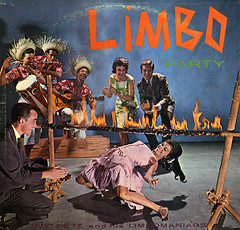
- Image by Max Sparber via Flickr
In 2003, Richard Horton, editor-in-chief of the British medical journal, The Lancet, wrote a commentary suggesting that top medical journals were practicing “institutional racism,” a form of discrimination where the diseases and health affairs of poor countries were being systematically ignored in the world’s most prestigious journals.
Horton illustrated that the editorial boards of the most prestigious medical journals included few (if any) researchers from low-income countries, and that this bias may affect the articles that a journal accepts and publishes. Moreover, editors who have an eye on citations and their impact factor may actively avoid accepting articles on diseases seldom encountered in the developed world.
In a new article, a group of epidemiologists examined whether country of origin plays a role in citations to articles published in top medical journals. Their article, “Differences in citation rates by country of origin for papers published in top-ranked medical journals: do they reflect inequalities in access to publication?“ appears in the online version of the Journal of Epidemiology and Community Health.
Using citations as a proxy for article quality and noteworthiness, Olof Akre and others analyzed the citation patterns of nearly 5,000 papers published in the British Medical Journal (BMJ), The Lancet, Journal of the American Medical Association (JAMA), and the New England Journal of Medicine (NEJM) between 1998 and 2002.
Evidence of a citation differential by country, Akre argues, would suggest that some authors are finding it easier (or harder) to get published by virtue of their geographic location alone. In other words, editors were looking beyond quality in making manuscript decisions, raising the limbo bar for some while lowering it for others.
The researchers report that articles published in these four medical journals by authors residing in poor-t0-middle income countries were almost twice as likely to be poorly cited than US and UK authors publishing in their own journals. (“Poorly cited” was defined as the lower 25th percentile of citations).
Akre is careful about ascribing these differences to editorial bias alone and addresses other possible explanations, such as:
- Inadequate ISI indexing of medical journals in poor and developing countries resulting in undercounting citations
- Limited access to the research literature for authors in developing countries
- Smaller research communities in developing countries limits the number of potential citations
If we avoid potential methodological weaknesses and alternative explanations and take the results of this research at face value, then the top 4 medical journals have a lower bar (or quality threshold) for evaluating research emanating from developing countries.
But is this interpretation fair? The fundamental problem with this line of reasoning is considering citations to be indicators of quality over indicators of attention.
Accepting articles that are known to garner less attention (because they deal with health topics with little relevance to Western countries) means something very different than accepting articles of substandard quality and we should be careful with making this distinction.
Discussion
2 Thoughts on "Do Medical Editors Discriminate Against Poor Authors?"
It is unclear what, if anything, can be learned from this study.
First, as Phil suggests, researchers based in developing countries may work on different medical problems for which there is a smaller community of researchers. This would result in a smaller universe of potential citing papers and prevent any inference on citations as indicators of quality.
Second, it could be that developing country researchers have less opportunities to make their work known and weaker social ties with their peers, which would also lead to lower citation rates.
Patrick Gaule
Good points, Patrick.
Authors residing in the United States are more likely to be highly-cited if they publish their articles in British journals, especially in BMJ (Fig 1A). This would seem to support the social ties explanation. However, the reverse is not true — British authors are more likely to be poorly-cited if they publish in US journals (this effect driven mostly by JAMA).
With only 4 journals in the dataset, it would be difficult to discern journal effects from social network effects.
![Reblog this post [with Zemanta]](http://img.zemanta.com/reblog_e.png?x-id=8f4294a5-8f11-4af5-9853-4a68afcd0c91)


